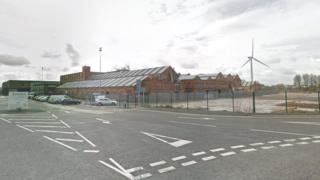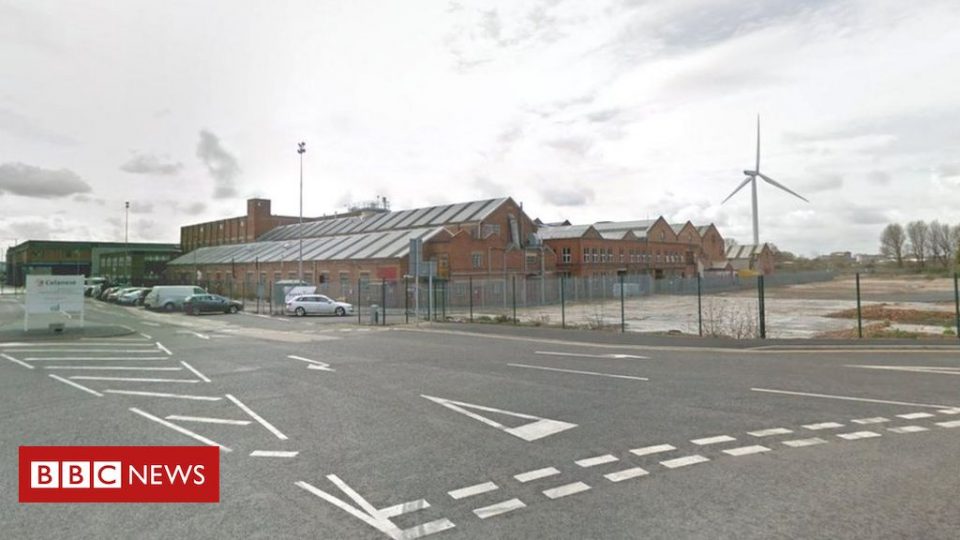
Image copyright
Google
The food campus is to be built on the site of one of Derby’s biggest derelict factories
Thousands of jobs have been announced for a new sustainable food factory in Derby which leaders have called “a massive boost” for the city.
Plans for the high-tech site outline the creation of 4,500 jobs over the next four years.
The move has been confirmed with £12m government funding that was announced on Monday evening.
Derby City Council leader Chris Poulter said the news would help “diversify” the city’s economy.
Labelled as a “food campus”, the factory is set to be built on 140 acres of the former Celanese site in Spondon.
Image copyright
PA Media
Derby is more commonly associated with engineering like Rolls-Royce
It will be operated by Smartparc, a low-carbon food manufacturer, who said it would be an “incubator”, bringing food producers together to use their knowledge and investment to reduce food waste, lowering carbon outputs and increasing UK food security.
The site’s operation will include working with the University of Derby, and feature a shared energy plant along with embracing vertical farming to grow crops indoors.
Jackie Wild, chief executive of SmartParc, said the campus was part of a £300m investment “to put Derby city and the UK at the heart of the future of sustainable food manufacturing globally.
“It will also act as a community hub, with a new food innovation centre and skills facility and planned partnerships with local charities, schools and universities to reconnect people with the food they eat,” she added.
Mr Poulter said the latest investment “was a huge vote of confidence in the city’s economic recovery strategy” following the coronavirus crisis.
He added: “Throughout the past four months we have been doing all we can to support existing businesses but also looking at opportunities for the future – to diversify our economy, to improve our environmental credentials and to make Derby a brilliant place to live and work.”
Pauline Latham, MP for Mid Derbyshire, said it was “amazing” news and hoped it would spark a wider regeneration of the area.
Work is expected to start in early 2021 with the whole project to be completed by 2024.
Follow BBC East Midlands on Facebook, Twitter, or Instagram. Send your story ideas to [email protected].


